Iraq Protest Camps Splinter Over Cleric's Backing Of New PM
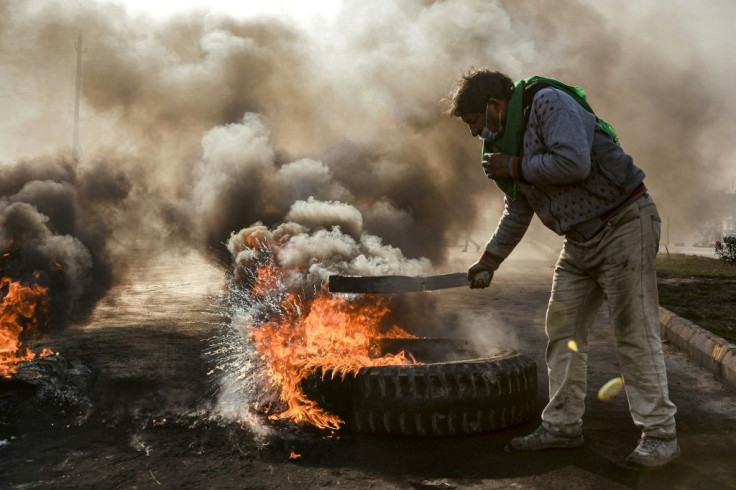
Protest camps across Iraq began fracturing on Monday over whether to back premier-designate Mohammad Allawi or continue opposing the government, marking a pivotal point for the four-month-old movement.
One demonstrator was killed in southern Iraq, medics and security sources said, after men in blue caps, the signature headgear of followers of cleric Moqtada Sadr, attacked an anti-regime rally.
Iraq's capital and mainly-Shiite south have been rocked by months of protests demanding an overhaul of the government, but Allawi's appointment as premier on Saturday has so far failed to quell the rallies.
Most young protesters have rejected Allawi, twice communications minister, as too close to the ruling elite and a product of consensus among much-reviled parties.
But Sadr, who has backed the rallies and demanded reform, has both welcomed Allawi's appointment and urged his followers to stay in the streets.
That has sparked confusion and created a rift in protest squares across Iraq between organised Sadrists and angry, leaderless youth.
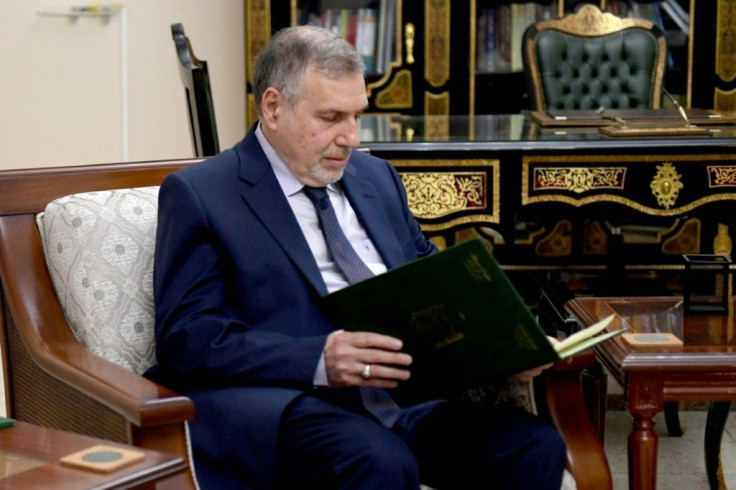
Late Sunday, demonstrators opposed to Allawi's nomination began clustering their tents closer together in Baghdad's Tahrir Square, away from those occupied by Sadrists.
"They're split into two parts now, and there are plenty of people on both sides. I'm worried about a clash," one long-time protester in Tahrir told AFP.
At the weekend, dozens of Sadrists stormed a key building in Tahrir that was occupied for months by protesters, driving out activists and removing banners listing their demands.
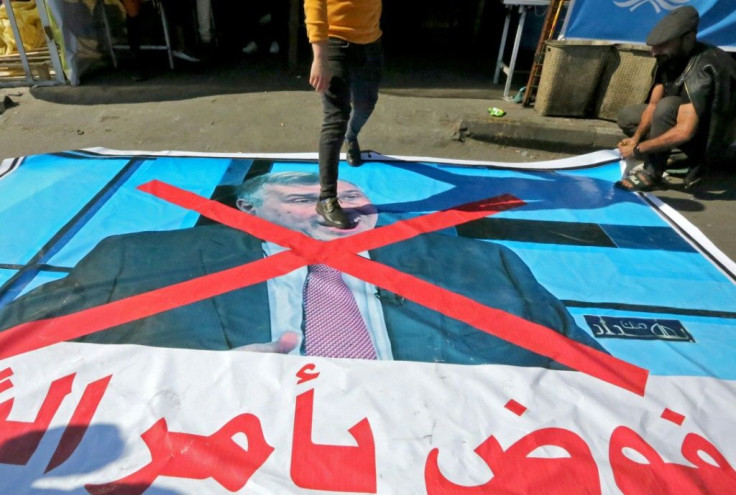
Sadr, a 45-year-old figure with a cult-like following across Baghdad, endorsed the protests when they broke out in October but has repeatedly rethought his support.
On Sunday, he condemned student sit-ins and road closures, the two tactics most used by protesters, and tweeted that "the 'blue caps must coordinate with security forces and education directorates" to reopen schools and streets.
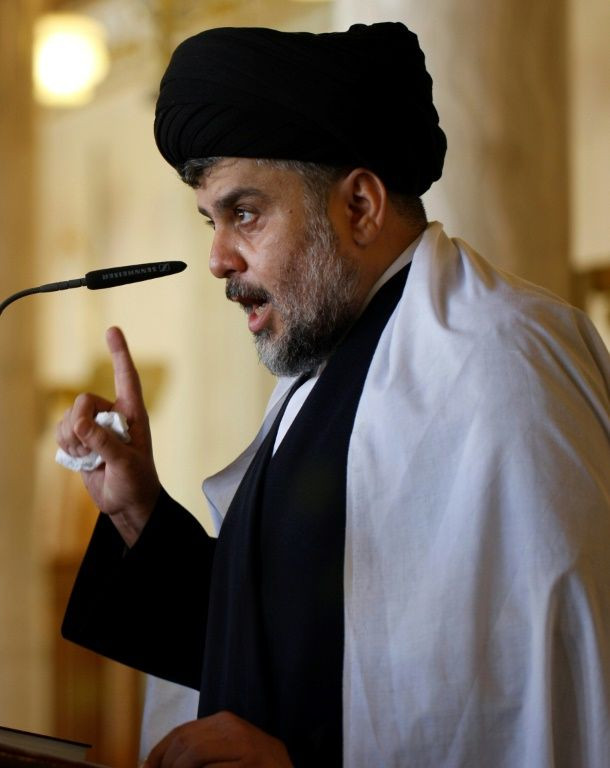
The next morning, Sadrists deployed at schools and public offices in the southern city of Hilla to ensure they would fully reopen after intermittent closures due to the rallies, AFP reporters said.
But they clashed with protesters who insisted on keeping the provincial government's headquarters there shut as a sign of resistance to Allawi, AFP's correspondent said.
One man at the sit-in was stabbed in the neck and died of his wounds in hospital, while three others were hurt after being hit with batons, the medical and security sources told AFP.
In Nasiriyah, a southern city where government offices have been shut for months by the rallies, prominent protester Alaa Rikaby said it was a "critical time" for the movement.
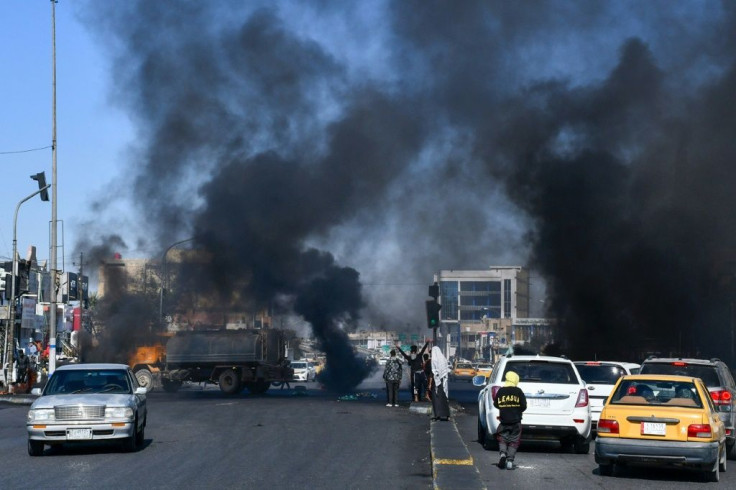
Rikaby, a pharmacist by training, insisted Allawi was "not the people's choice", and appeared to try to steal Sadr's thunder.
"Let's take the initiative to open schools and public offices starting tomorrow, so as not to lose this opportunity to anyone else," Rikaby said in a video posted to Twitter.
In Kut, anti-regime protesters began donning red caps to distinguish themselves from the Sadrists.
Further south in Basra, university students relocated their tents to move away from Sadr supporters, AFP's correspondents there said.
"If Sadrists come to the protest square, don't come into contact with them, don't make problems," one organiser there called out over a loudspeaker.
The divisions appear to have worried the incoming premier, who has asked demonstrations to "pull back the fuse of conflict".
"Otherwise, we will lose what great achievements we have made and drag our country into the abyss," Allawi said in an overnight tweet.
Allawi, 65, launched his political career in the aftermath of the US-led invasion of Iraq in 2003, first as a parliamentarian and then twice as communications minister under former premier Nuri al-Maliki.
But he resigned both times, alleging mass graft in a country considered among the top 20 most corrupt in the world by watchdog Transparency International.
His appointment came after crisis talks prompted by President Barham Saleh, who threatened to select his own candidate unless parliamentary blocs agreed on someone by February 1.
The negotiations were highly secretive and it remains unclear what unlocked the deal that saw Allawi announce his own nomination Saturday in a video posted to Twitter.
Allawi has until March 2 to form his cabinet, which he insisted will be staffed based on skill, not nepotism.
It would be subject to a vote of confidence from parliament, at which point Allawi's term would officially begin.
He is expected to oversee early parliamentary elections under a new voting law but no date has yet been set.
Allawi met with the United Nations' top official in Iraq Jeanine Hennis-Plasschaert for the first time on Monday after receiving his first public congratulations from a foreign counterpart, Jordanian PM Omar al-Razzaz.
© Copyright AFP 2024. All rights reserved.





















